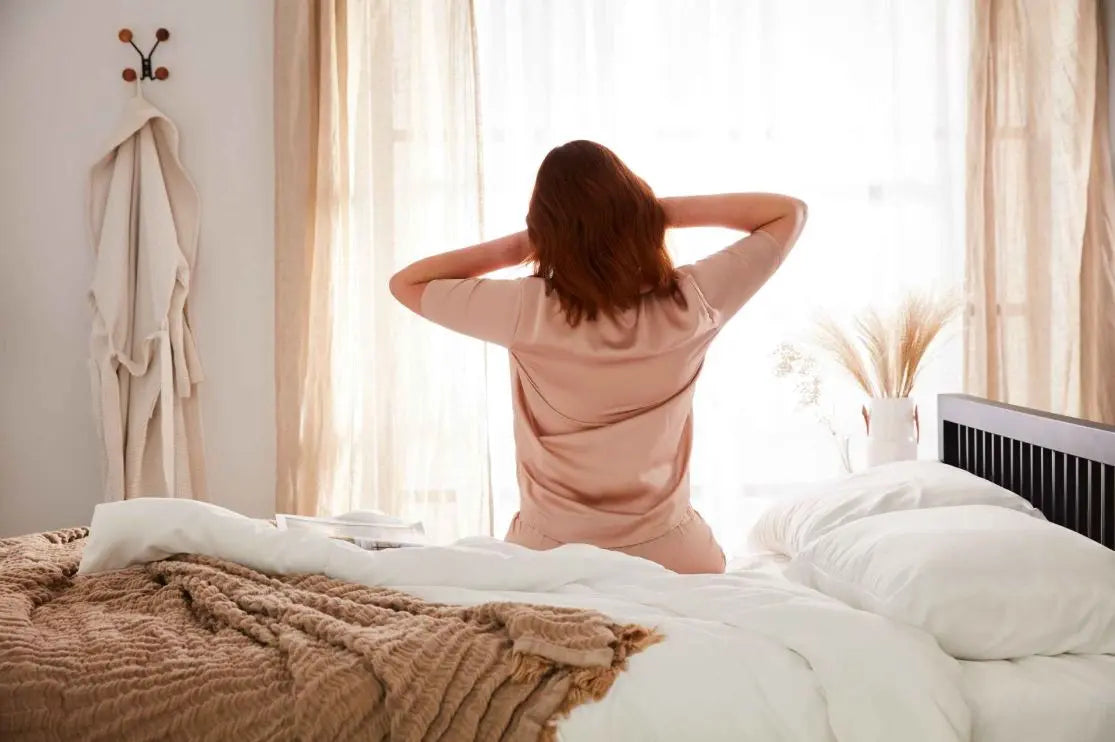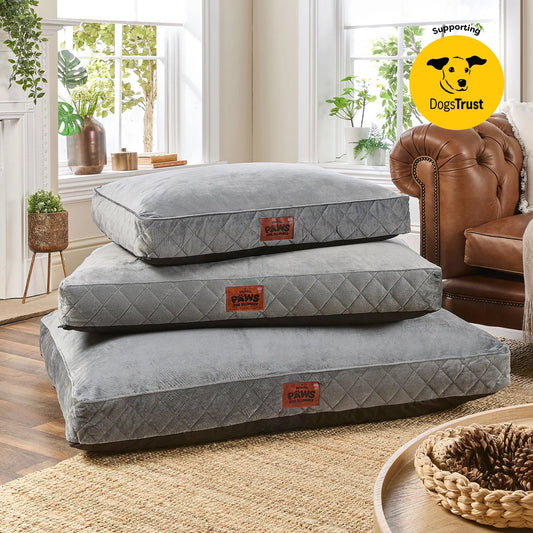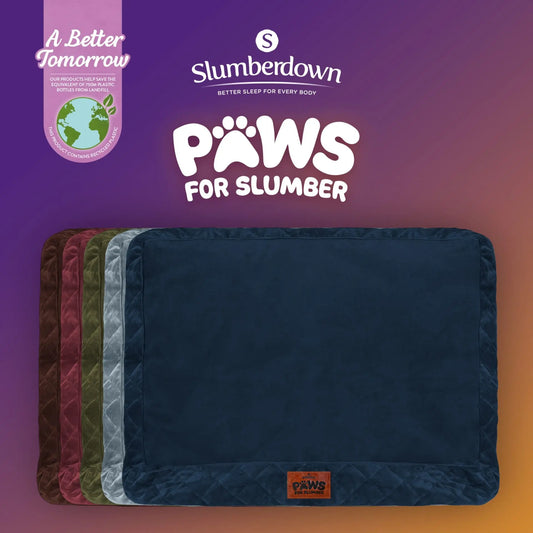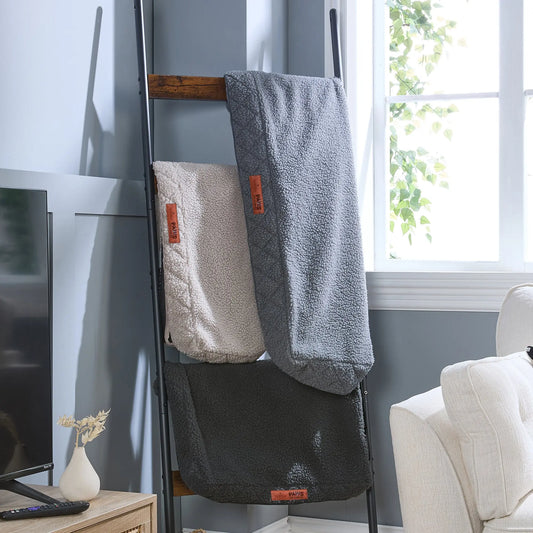5 tips to sleep soundly during allergy season
SEASONAL SLEEP

Many Brits suffer from allergies – whether it’s the 5 million[1] of us dealing with allergies worsening our asthma, or the 16 million[2] of us who are struck down by hay fever each year, it’s more common than you might think! When you’re feeling congested, no matter the reason, symptoms can often get worse at night which can have a detrimental effect on the amount of sleep you get, and the quality of that sleep. Karen Innes, New Product Development Manager at Slumberdown, shares her top tips for minimising the impact allergens can have on the quality of your sleep.
Are there allergens in my home?
“In short – yes! Some of the most common allergens in the home are dust mites, dust particles, animal hair, and dander, all of which can be found in our bedrooms and could affect your sleep. By ensuring you’re using the right bedding for you, and looking after it properly, you can limit the effect these allergens have on your sleep quality.
Choose the right bedding
“If you suffer from sniffles in the small hours, make sure to check that any bedding you’re buying has been made with specific anti-allergy fillings. For example, our Slumberdown Anti-Allergy range has been tested by the experts at Allergy UK and uses a special anti-allergy treated filling to help reduce the build-up of dust mites, bacteria and fungi. This is particularly important for homes with children as household dust mites are responsible for causing 85% of allergic reactions amongst youngsters with asthma! Using a mattress protector and pillow protector can help to reduce dust mite build-up too – these not only add an extra layer of protection but can be easily removed and washed on a regular basis.
Caring for your bedding
“Many of us change our bed linen fortnightly, and for the most part this is regularly enough – but if you’re someone who really suffers from allergies, washing your bedding every week will help reduce the build-up of dust mites and particles. “Don’t forget to wash your duvet and pillows too! Duvets and pillows featuring anti-allergy fillings can generally be washed on a 40°C cycle but be sure to check the instructions on yours before washing. If you’re really suffering, try washing your duvet every four months and your pillows every two months – making sure they’re super clean should help reduce your symptoms.
Air it out
“To keep your bedding smelling fresh and prevent damp, it’s important to air it out. If you can, pull back your duvet and let some fresh air into your bedroom every morning, allowing enough time for your mattress and bedding to get a breather. “Alternatively, hang your duvet over your bannister or on the back of a chair a few times a week, ideally without its duvet cover on, which will allow your bed and duvet to ventilate properly. “With either option, you’re reducing the moisture in your bed and preventing the build-up of various known allergens. Dust mites in particular hate natural light and fresh air!
Getting cosy with your furry friends
“As a nation, we all love our furry little friends, but animals on the bed can worsen asthma and allergies. Hard as it may be, banning pets from the bedroom would certainly help to reduce allergens, but we know that many people think of their pets as family members and can’t bring themselves to banish their furry sleep partner! “If you can’t help snuggling up in bed with your pet, we would suggest washing your bedding a minimum of once a week, as their hair and dander can worsen allergy symptoms. Try washing your sheets with pet-friendly detergents; this will keep your bedding nice and clean and free from dust particles for you and your furry family member. “For ultimate, pet-friendly hygiene, look for bedding that uses anti-bacterial materials which offer protection against bacteria, mould, mildew and many other harmful microbes. Bedding with built-in hygienic properties will reduce your exposure to any unhealthy germs. “Our innovative Total Protection range boasts a fast-acting anti-bacterial and anti-viral treatment, meaning it defends against the build-up and cross-contamination of harmful and odour-causing bacteria, keeping your duvets, pillows and mattresses fresher and healthier for longer.













